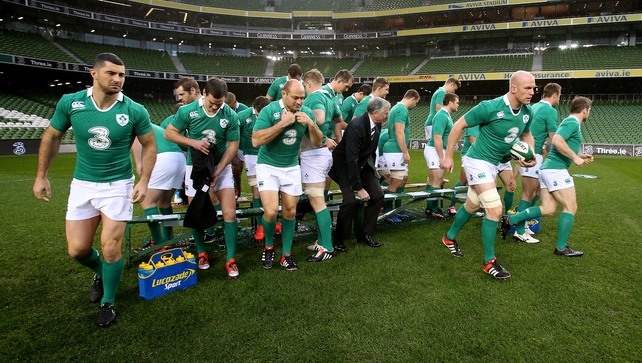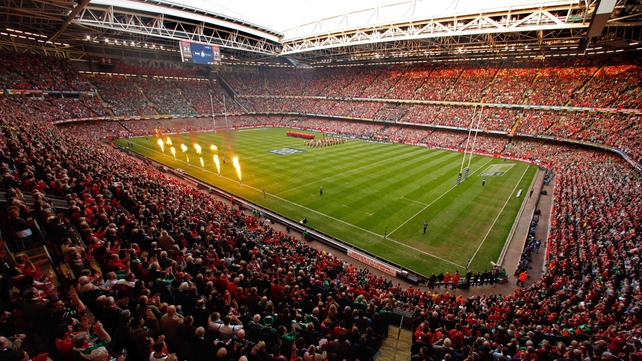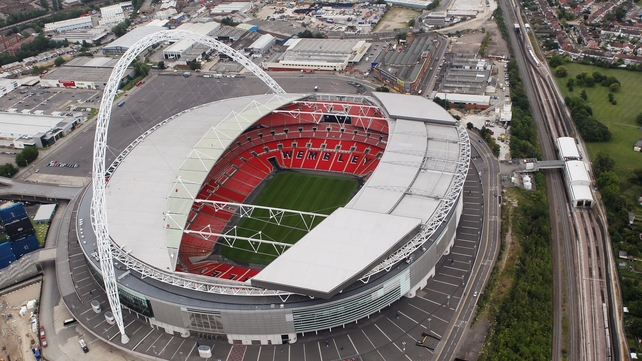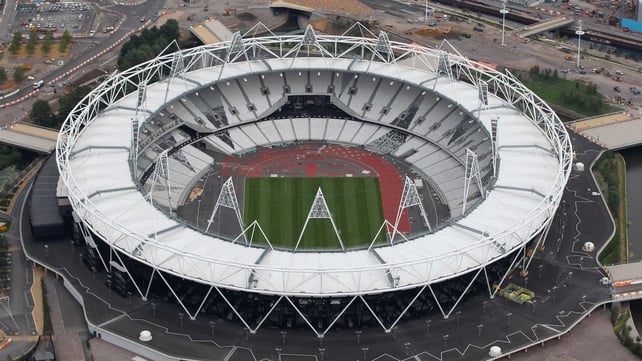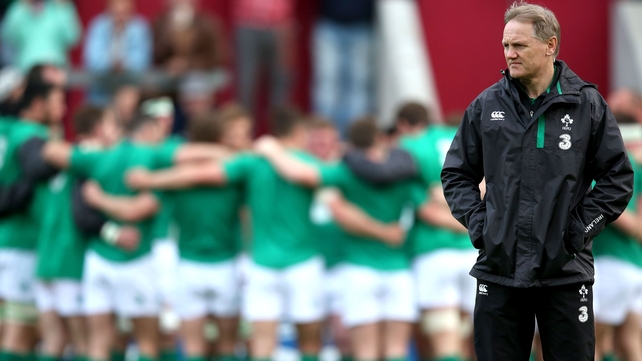by Dale Husband Sun 15 Nov 2015
Eliota Fuimaono-Sapolu, who’s 35, has been making his name as a rugby player for more than 20 years — as a Manurewa junior, then in the 1st XV for Auckland Grammar, in 23 test matches for Manu Samoa (including the 2007 and 2011 World Cups), as a professional in the UK for Bath (43 games) and Gloucester (54), and in Japan for the Coca Cola West Red Sparks. It has been an outstanding career. But he has made many more headlines as an uncompromising critic of the racism in and beyond the rugby establishment. Here he talks with Dale about some of his concerns — and his hopes, too.
Kia ora Eliota. I understand that you were born in Samoa, that you came to New Zealand as a three-year-old, that your family eventually settled in Manurewa — and that you spent your high school years at Auckland Grammar, which probably was fairly white in those days.
My schools in Manurewa were predominantly Māori and Pacific, so I had no idea what Auckland Grammar would be like. But the school was completely different from Manurewa and where I was raised. I felt very comfortable around Polynesian and Māori people and then I was off to a school where there were about five of us.
But there were (and there are) white supremacy attitudes right through the school system. I remember this general knowledge question in primary school: “Who discovered New Zealand?” And I wrote: “Māori discovered New Zealand.” And that was wrong. I was told the correct answer was Abel Tasman. Even though there were Māori people already here in New Zealand, it was very important for us to learn that a white person was “first”.
That was at primary school. And then you go to Auckland Grammar where it’s complete white supremacy, and you concentrate on white history no matter how irrelevant. Try finding a practical situation where knowing all the British kings and queens is relevant. See if you need that anywhere in life. But that’s what I learned at Auckland Grammar.
Then, after five years there, I go to university and they ask us about the Treaty of Waitangi. And I’m like: “What the hell is this?” I knew nothing about Māori. I knew everything British. I knew everything white. I knew nothing about the Pacific. I learned nothing about Māori. Nothing at that school.
We’re taught a lot of lies at school. A lot of rubbish. We’re not taught a lot of truth. I look back now — it’s just so bad. We learn about Captain Cook, but we don’t learn about his Polynesian navigator, Tupaia, who showed him where to go. Cook even writes about Tupaia who was telling them, for instance, to stay away from that island because there’s a reef right there, or to call in on this island because it has more supplies.
Cook has this Polynesian navigator right there with him in his very first voyage, and he’s spelling that out in his diary. But there’s nothing about Tupaia in the New Zealand school curriculum. Instead, there’s all this irrelevant stuff about the English kings and queens — and, if you don’t learn that, you don’t pass. They force us to learn it. And yet it has no use. Absolutely no practical use.
And, while they’re putting these things in our educational system, they’re taking away our own identity and our own belief in ourselves and our culture. It’s a process of colonising our minds — and so we have to try and decolonise our minds and unlearn these things in the hope that we can help our next generation to develop their own self-belief.
This sounds like korero from Ngā Tamatoa or the Polynesian Panthers. And I respect that because our young people do need to gauge the value and the relevance of what they’re being taught. But I suppose, when you raised any of these issues, it would’ve put you off-side.
It always got me off-side. At Auckland Grammar, I was constantly in trouble, always on detention. I stood up in history class and asked: “Why are we learning everything white, and there’s nothing brown here?” I was at the stage where I was questioning everything and I really didn’t care what the reaction might be.
Outside the classroom it was different because I won the best all-rounder award in the 1st XV. There were some big names who’d won it in earlier years. Like Grant Fox and Martin Crowe. But I could never be a prefect. When you challenge their white world, if they perceive a threat, you’re pushed to the side.
What’s your attitude now that you look back on your years at what some would consider the most prestigious school in New Zealand? Do you resent going there?
I was very lucky that I had a mother who doesn’t have anything like the conventional view of the world. I notice that a number of Polynesian guys from that school are very confident. I don’t think they’re confident in themselves being Polynesian. They’re confident with that sense of entitlement that: “I went to Auckland Grammar. I can say what I want.” Their confidence comes from that privileged schooling.
I don’t know? Maybe people want to keep on sending their children there, but I think it’s important that we find ways to empower the schools which are predominantly Māori and Polynesian. And that we give these kids the knowledge to decolonise, and to find the brilliance in themselves — so they know their history and their achievers and the beautiful, genius things they should be celebrating within our cultures.
I tautoko what you’re saying. But, despite the prejudices of the education system, Māori and Polynesian emancipation has been proceeding. You’re an example of that. And perhaps, in a way, your experiences at Auckland Grammar have helped you formulate your ideas.
Yes, definitely, because I was always on this quest. But another element is something in our history. Why is my mother so brilliant? She’s fresh. She can barely speak English properly and yet she’s a genius. She’s fearless. Everywhere we’d go, if we weren’t treated right, she’d just say it.
There’s been this narrative from our colonisers that we are savages. Many Palagi and Pākehā embrace the narrative that we’re savages. And that helps justify and perpetuate the racism in our society.
You’ve just mentioned your mum. Could we take a moment to touch on your parents’ background?
Well, Mum and Dad came over with us from Samoa in the early 1980s. My mother was from Vaiala and Fagaloa, and my father from Falelatai. He came here to study medicine. In the beginning, we were living in a one bedroom flat in Grafton — and then in Grey Lynn. But once my mother graduated and became a lawyer we moved south to Manurewa. As kids we spent quite a bit of time in her law office, and law was pretty much all I wanted as a career. In our law firm, we haven’t specialised. So we do everything — family, criminal, conveyancing, the lot.
Let’s turn back now to your concern about the mind-set that encourages a disparaging view of Polynesians.
Well, it is an important issue. And I’ve done a DVD to try to counter that attitude. It’s called “This is the Pacific history that they don’t teach at school.” I worked on that as a result of attending schools which don’t teach that Pacific history … which don’t teach our children about the genocide in West Papua … or about the efforts to exterminate Aboriginals in Australia … or about what happened to Māori in New Zealand.
I made the DVD because of my experiences in these white supremacist schools that taught nothing about us when they could have been telling us about Tupaia, and how Polynesians invented surfing, and about our brilliant ancient navigators, and about any number of other Polynesian achievements.
James Cook recognised the talent and the achievements. He wrote that the Polynesians were the most extraordinary race he’d ever come across. Here we were navigating the oceans. This brown race was unbelievable. But that doesn’t get any attention in the history our kids are taught because, well, God forbid, those brown people might be perceived as superior to the white ones.
So that’s why I made the DVD.
Unfortunately, this type of kōrero coming from you, a young Samoan man, is not the norm. Our own people, especially the older generation are conservative and, as colonised people, many have become compliant. So I suspect that, when you’re challenging their style and their viewpoints, you’re getting offside with them.
Oh, absolutely. Especially at home. In Samoa, in order to run for Parliament, you have to have a matai title. You have to have a cultural matai title bestowed on you. Yet, in Samoa, over half the villages don’t offer a matai title to women. So, for me, I don’t care if I’m offside. These are real issues that we need to address. But the great thing about it is that a lot of youth are raising questions. And I’m encouraging the questions by directing the DVD at youth. It’s in six-minute clips because youth want their information quick.
Old people are a bit harder to change and are stuck in their ways, which is fine and I don’t condemn them. We’re here by virtue of our elders. Because of them, we have survived. Thankfully. The most important thing for our ancestors who were facing extermination was survive. Just survive.
Then there’ll be a generation who will bring us back. Who will bring us back to who we really are. Bring back our female leaders. Bring back our culture — everything. This world needs who we really are. You look at climate change, the pollution, the over population, the corporatisation. This world is self-destructing simply because we’ve gone away from indigenous principles.
I’m intrigued by our Māori and Pasifika relationships. At one time in my life, I thought we were distinct peoples. But, as I’ve got older, I’ve come to feel that our whakapapa connections are real. That we are cousins. That we are whānau. Is that how you see us now?
Absolutely. And we need to accept that as well. Politically, the European colonisers were brilliant with their “divide and conquer.” They divided the Pacific people into these little islands by destroying our boats. They went around the islands using their cannons and destroyed every single double-hulled vessel they saw. They conceded that these Pacific boats were bigger and faster. So they destroyed them to limit our people to their islands.
And that’s why no one navigates now, even though there are still Tongan elders who talk about the voyages that the Tongans made to New Zealand to hunt the moa. And in the Cook Islands and Tahiti, for instance, there are stories of their navigators and their voyages, including journeys to New Zealand.
But the links are everywhere in our languages. Like in alofa, aroha, or aloha. In our numbers too: tasi, lua, tolu, fa and tahi, rua, toru, wha. And in the legend of Māui who wasn’t just the discoverer of Aotearoa but also of Tonga and Hawai‘i. It’s all there. But, unfortunately, the colonisers did this brilliant number on us, just as they did in Africa. They knew how to colonise the mind — and the people. You have to divide people. Which is what they did with us. They divided and conquered. So now we need to take back who we were and who we are. But at the same time, I can definitely see that this is the land of the Māori. This is Aotearoa.
That kind of kōrero inevitably ruffles the feathers of the establishment. And you’ve done the same with your criticisms of the self-serving nature of the rugby establishment here and overseas. You haven’t been impressed by the rugby bosses’ habit of short-changing the Pacific Island countries — and for taking almost forever to organise an All Black trip for a test match in Samoa.
Yeah, the attitude has been bad enough in New Zealand with its history of kowtowing to South Africa and leaving Māori players out of the All Black teams touring South Africa because the South Africans didn’t want brown-skinned players visiting them. At least the NZRFU eventually apologised for that.
But for us Samoans, it’s worse. At least when the All Blacks tour England, and you sell out Twickenham, there’s a fixed fee of like two million pounds, that goes straight to the All Blacks. But when Samoa plays England, and it’s a sell-out at Twickenham, Samoa gets nothing. England will get seven million pounds, just like that, and Samoa gets nothing.
So we’re always having to fight. We’re contributing so much to world rugby and getting back so little. Take the World Cup games in the last month or so. All four of the Manu Samoa games were sold out and the IRB (International Rugby Board) is going to pay Samoa 150,000 pounds. That’s 10,000 pounds less than Samoa TV had to pay for the rights to show our games to Samoa.
Meanwhile, in Ward 5 of our hospital in Apia, there are five young players paralysed from rugby. We get nothing to help them. There are issues like that where we have to fight. It’s like trying to fight colonialism all over again. Neo-colonialism. Because we’re being treated like crap.
And, when we were trying to bring the All Blacks to Samoa, it was about trying to bring some money to Samoa, to bring the tourists, to find ways of helping our economy and our rugby because we don’t get anything when we tour in the UK.
So that’s why our Samoan rugby is struggling. And there’s another problem which could mean rugby is dying in Samoa. American football is taking away some of our best talent. Last year they came in and now 30 of our biggest players — some of them only 16-year-olds — are off to colleges in the States. And for us, in Samoa, we’re actually happy that kids are now not playing rugby, because the game isn’t good for us.
Eliota, we appreciate your sobering comments. And when we hear you, still a young man in your 30s, taking up these issues, we can have some confidence that there are significant efforts for change. But perhaps too many of our rangatahi are politically apathetic.
No, I don’t think they’re apathetic. And this generation is in a much stronger position than we were. Every kid has a cellphone and that’s like a super-computer in their pocket. We tend to tell them that that’s the problem. But I think it’s the solution because they have access to a vast array of information and perspectives and opinions.
They’re in a position now where they don’t have to accept the American line that they were the good guys in the Vietnam war. Or the British line about dealing with the Māori savages. They can google Vietnamese views. And Māori perspectives. They’re a generation who have a chance to open up their minds.
You’ve had so much success in rugby that you might easily have kept your head down and not complicated your life by speaking out so forthrightly on various issues. Is that at least partly because you see high-profile personalities as having a responsibility to speak up?
I think it’s very important that we don’t become absorbed in our fame — partly because that fame is fleeting. But we also need to be conscious of the political issues that are affecting other players and the fans. I think we have a duty to be vocal about the policies that affect the people who watch us. There are questions about employment, taxes and affordable housing. And, as prominent sporting personalities, we’re in a position to have some influence.
You’re confident that we can make a better Aotearoa and a better Pacific?
Absolutely. I see so much brilliance in our Māori and Polynesian children. They’re so good at so many things. Sport. Academics. Whatever. And we just have to help them believe in themselves. It’s my belief in our children, our next generation, that inspires me.




